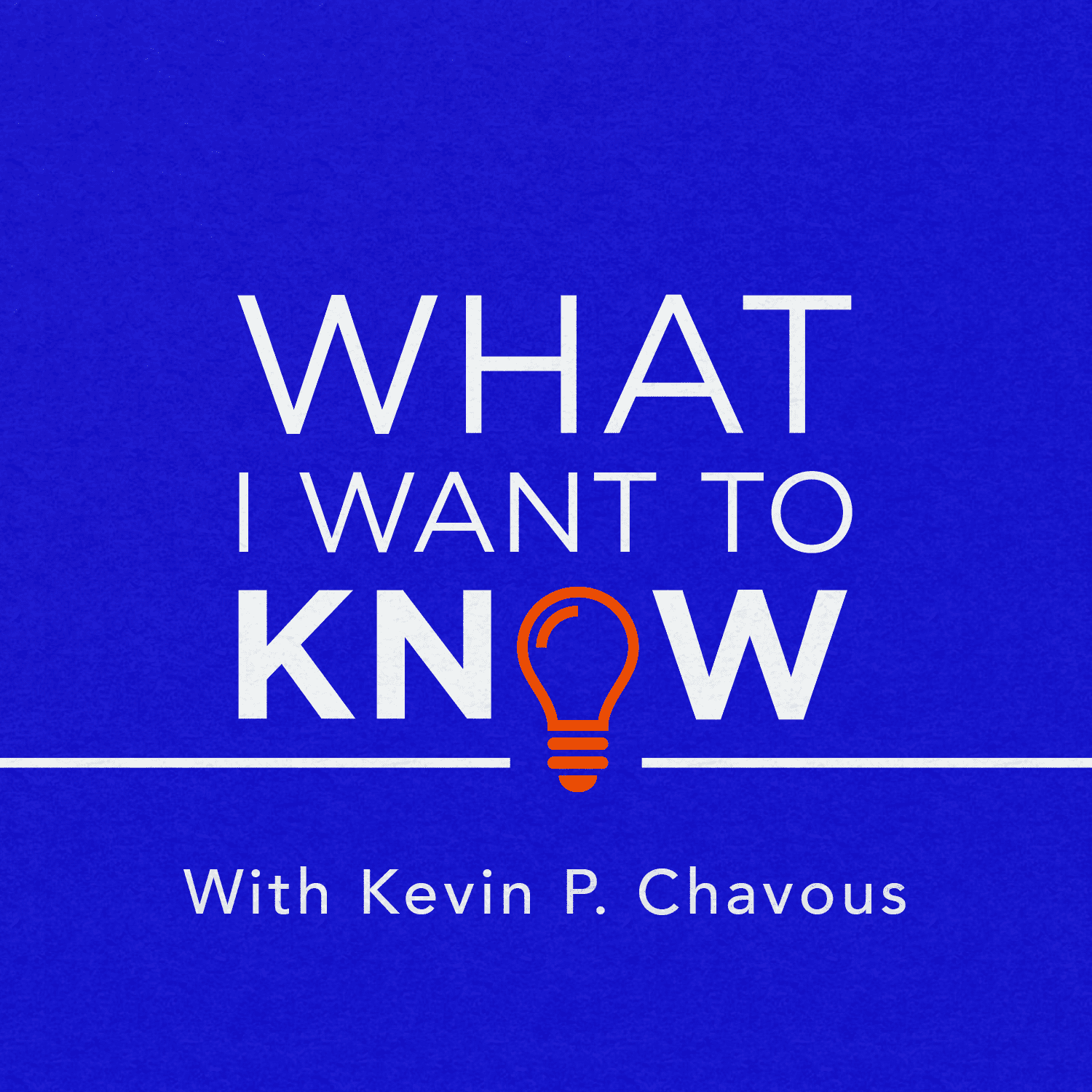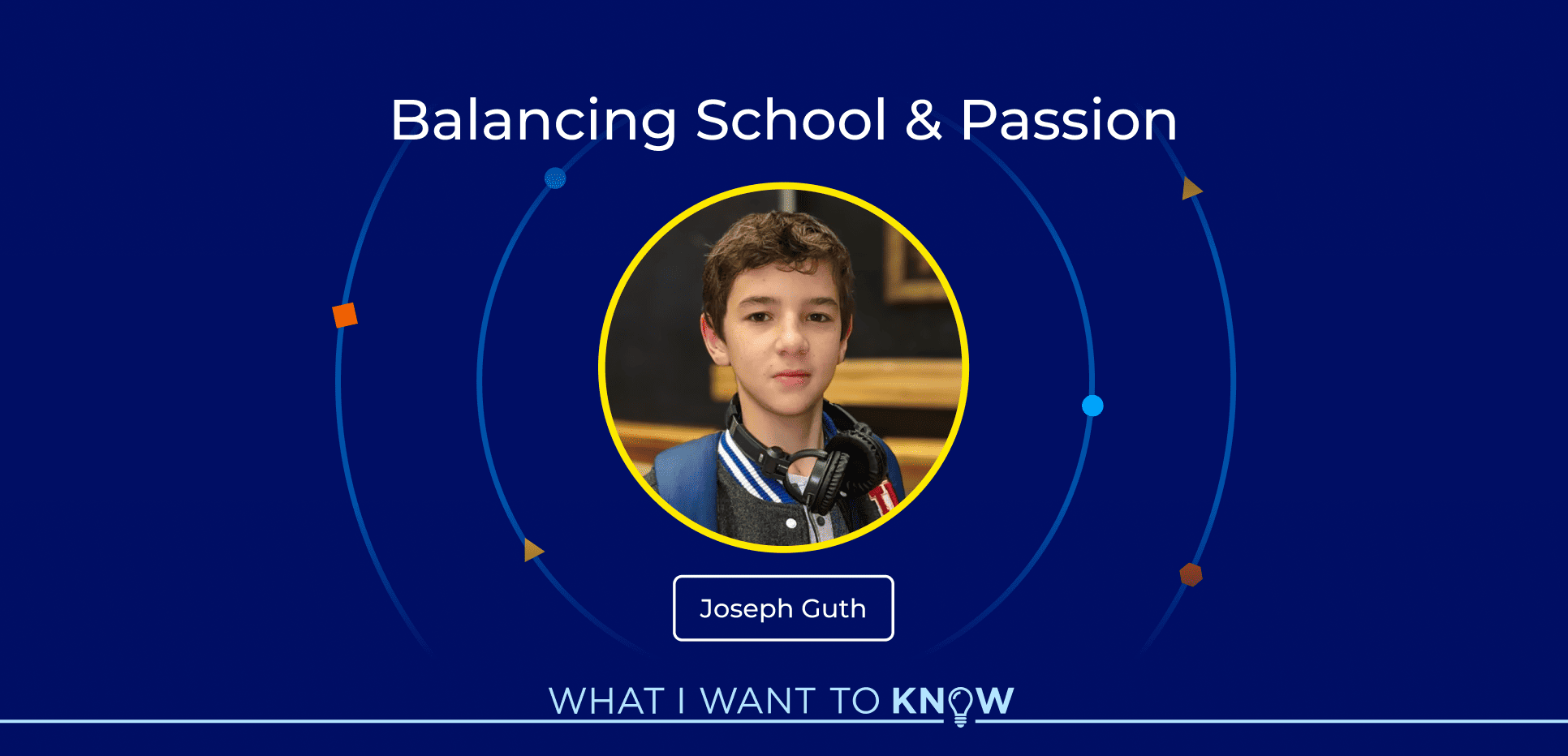Since the pandemic, more families are choosing to homeschool their children. In fact, homeschool enrollment has increased by nearly 30%. The most dramatic increase was seen with Black families, with the number of homeschooled Black children rising from 3% to 16% in 2020.
Why is homeschooling on the rise? How can families know if homeschooling is right for them? And how can parents use their voice to find the best option for their children?
In this episode, Onnikah Randolph joins Kevin to discuss homeschooling and how parents can feel empowered to find the right option for their children.
Listen to the Full Audio
Listen on: Apple Podcast, Spotify
Transcript
Kevin: Since the pandemic, more families are choosing to homeschool their children. In fact, homeschool enrollment has increased by nearly 30%. The most dramatic increase was seen with Black families, with the number of homeschooled Black children rising from 3% to 16% in 2020. Why is homeschooling on the rise? How can families know if homeschooling is right for them? And how can parents use their voice to find the best option for their children?
This is “What I Want to Know.” Today I am joined by Onnikah Randolph to find out.
Onnikah: Ever since the pandemic hit moms want to know, you know, “What do I do now? Like, oh my gosh, like I’ve never even thought that they would be home with me.” You know what I mean?
Kevin: Yeah.
Onnikah: “And I don’t know step one.” I’m like, “Actually, you do. You do know step one, and you’ve been doing it for years, you know, from the beginning. You’re their first teacher.”
Kevin: Since the pandemic, more families are choosing to homeschool their children. In fact, homeschool enrollment has increased by nearly 30%. The most dramatic increase was seen with Black families, with the number of homeschooled Black children rising from 3% to 16% in 2020. Why is homeschooling on the rise? How can families know if homeschooling is right for them? And how can parents use their voice to find the best option for their children?
This is “What I Want to Know.” Today I am joined by Onnikah Randolph to find out.
Onnikah Randolph is the Homeschooling Network Director of Mocha Moms Incorporated, an organization dedicated to providing support for mothers of color. After becoming a member of Mocha Moms in 2018, she now provides her local chapter with tools and resources related to homeschooling. She joins us today to discuss homeschooling and how parents can feel empowered to find the right option for their children.
Onnikah, welcome to the show. You know, I’ve really been looking forward to chatting with you and all the work you’ve done with Mocha Moms and more importantly the work you’ve done with your own children. But first and foremost, you obviously have an interest in education, but talk to me a little bit about your own educational experience.
Onnikah: Okay. Yes, it’s a pleasure to be here. My educational experience is I’m a proud graduate of Tuskegee University, and there I majored in social work. So I’ve always had like a heart for the people from the beginning. From Tuskegee, I went on back home to Chicago, and I went to the University of Illinois Chicago and did an accelerated program for my master’s in social work. And I dealt with community organizations and administrative practice. So I worked as a therapist for a number of years and also in community organizations.
Kevin: You know, you came from Chicago, and people talk about some of the challenges with some of our urban schools. How was your educational experience when you were coming up in Chicago?
Onnikah: When I was coming up in Chicago, I actually was blessed. I had a mother that was an educator. So from the beginning, I was in those school books. I did both public education, and then when I got to middle school, I had to do private. My mom wanted me to do private school. I was in the south suburbs of Chicago, and the middle school didn’t have a great reputation.
Kevin: Yeah.
Onnikah: So she’s like, “I’m not doing that.” Okay, so off to private school I went. And when it came time for high school, then I went back to a public school. She felt like I can handle it, had, you know, a great foundation, head on straight. It was great because it was very mixed. We were probably about 40%, between 30% and 40%. But everybody pretty much got along.
But we did have other resources that a lot of the city schools didn’t have. Like my high school had a hockey team. Nobody, you know, what I’m saying? Not a lot of schools had that. But, of course, we had the core football, basketball.
Kevin: Yeah.
Onnikah: Now, the interesting caveat to that is you know how your high school counselor is supposed to help you with the college applications?
Kevin: Right.
Onnikah: My counselor was not like calling me down. Now, mind you, I had a great GPA. I’m in honors classes. So it was so hard to get an appointment with him. Now, this actually is probably one of the reasons why I ended up majoring in social work.
But the school social worker, it was a Black male, Mr. Collins, he was also a football coach. And he would, you know, see me in practice with the dance team and stuff like that. And, you know, so he’s like, “Where are you going to school? What’s going on?” Da, da, da. And I’m like, “Oh, you know, I’m trying to . . . I’m filling out my applications, but I’m trying to get into the counselor’s office.” And so he’s just like, “What do you mean you’re trying to get in there?” And I’m like, “He hasn’t called me down yet. Like, I’m still waiting on Mr. Bennett.”
He was like, “Oh, no.” Like, we’re not dealing with that. And he called me into his office and literally helped me with the applications and did everything that the counselor was supposed to be doing at the time. So and I wasn’t one of his clients.
Kevin: I mean, one of the challenges that we’ve seen in far too many schools is a lot of kids fall through the cracks because they don’t have either that support at home or even an individual that takes to them in school. And as I understand it, what helped drive you to Mocha Moms was you saw with your son you needed to step in. So talk a little bit about that because I think that’s really, really important.
Onnikah: So it’s very interesting. Like, I moved here. I didn’t have any family or resources or things like that, people I knew. So I moved here from Chicago, had my son a couple years later. At that time, I wanted to ensure that our son had the integrity, values, things of that nature of myself. I didn’t feel comfortable dropping him off as well as my background in social work because, you know, the type of work that we do. So I’m like, “I think I’m going to stay home for a while, you know, until he can speak and let me know what’s going on.”
So we’re out like in the valley. So you get into the schools. From the beginning, he was the only little Black boy in class, right? And so I was super active and involved parent from the start.
And what I found was that if, let’s say, a pencil fell off his desk, I’m getting a call. Okay. Now somebody else can be over there rambunctious and seems like they’re coming in and out of school every day, you know, so with no issues, no problems. So I’m like, “Oh, like, you know, well, I can volunteer in the class. Like, you know, I want to observe as well. And I also want to make sure that the way that your teaching styles at home, I want it to be parallel of the way that I’m reviewing, I mean, at school is what I’m doing at home.” You know?
And what I realized was, no matter what, there was always something. Now, mind you, my son was always like super articulate before elementary school. We put him in a Montessori school. I wanted him to learn, you know, free thought and have an opinion, have a voice for himself, which is one of the reasons why I chose that.
And when we get to fourth grade, this teacher, I mean, he was in the honors program, okay? But this teacher, she wanted little cookie cutter, little robots. So no free thought, no ideas, no . . . My son is highly creative. His father is creative. I’m creative. But he’s highly creative. And he acts, he’s a active kid. He’s a little actor, like super excited about life and everything. So her mission was to shut him and several other students, just pretty much shut down that creativity.
What I learned was that she had moved back here from Korea, South Korea. She was teaching over there, and then she came here and went straight to that school. So the culture is completely different. You know? I’m meeting with the principal, vice principal, you know, and like, “This isn’t working.” So they’re talking to her like, “It’s not as rigid.” You know what I mean? You have to have fun with it. These are 9-year-olds. I mean, she’s coming in every day, strict, strict, strict. So then I ended up pulling him out.
Kevin: Is that when you decided to homeschool?
Onnikah: Absolutely.
Kevin: Eventually you were able to shape his experience in a way you thought was productive. And the reason why I want to focus on this is we have seen, since the pandemic, a 30% increase in homeschooling. And for Black children, Black families, in one year it went from 3% of Black families homeschooling nationwide to 16%. So apparently, because of the pandemic, parents got a chance to see what was going on in the classroom . . .
Onnikah: Exactly, yeah.
Kevin: . . . and they responded like a lot of American families, but particularly Black American families, they responded in mass. You saw that a little bit early on. But when you made that choice, were there any surprises, you know, with you getting started? Or did it fall in line the way you wanted it to?
Onnikah: Prior to the pandemic, just to be honest, Black people, like, they didn’t think they could homeschool their kids.
Kevin: No, exactly.
Onnikah: You know, did not think that we had the wherewithal, the tools. Like this was for like basically rich white families. Before I pulled him out, you know, it was always in the back of my mind. Even when I think about us being the only ones in L.A. and my family in Chicago, you know, following that school schedule, you can’t do much. I mean, you know what I mean, during the school year.
So I’m like, when something happens, he’s going to have to miss days, you know, when we have to go . . . if anything unforeseen were to happen, then he’ll be missing out. So it was always in the back of my mind, and I would start looking up. When he was 3, I knew all the schools in our area. You know what I mean? I was always looking, looking, looking, and wanted to know what was out there because I did have a vision for what I wanted.
But when it came time to do it, and I just knew that this situation is not going to work. Like, I really want him to be able to thrive in each and every area of his life, and I want to be able to support that. And I don’t want his school environment to hinder it in any way.
Kevin: Did he thrive when you became, you know, a homeschool parent?
Onnikah: Yeah. He started thriving in every area. There’s so many resources that people don’t know about. Well, I had no clue. Even in my own community, we became a part of a little homeschool community where you go there for so many hours, they offered classes. It was for like all ages. Parents actually were welcomed because a lot of these schools try to keep the parents out of the room. And when I would like ask about coming into the class, they’re like, “Oh, well, you know, we’re not having parents coming in, but . . .”
Kevin: You know, it’s sort of crazy. Sorry to interrupt you, but it’s sort of crazy now because there are far too many, and I don’t want to go down far down this road, but, you know, say what you said, just triggers something for me. There are far too many analogies to the way people enter prisons to the way they’re in our schools.
Onnikah: Exactly.
Kevin: They’re just far too many.
Onnikah: That’s what I was saying. Yeah.
Kevin: Far too many.
Onnikah: And that’s exactly what I meant when I said, because what they have in mind for him, and, you know, they’re picking how many prisons they need in the future from these classrooms today. You know, so they already have a targeted number and targeted communities, they’re going and . . . No, this one is going here. Like, you know, so it’s kind of like . . .
Kevin: And look, by the way, Onnikah, and that, you know, I know people may listen, that’s not conspiracy theory stuff.
Onnikah: No.
Kevin: That’s the way it works. So talk to me about how you got connected with Mocha Moms.
Onnikah: Okay, so I got connected with Mocha Moms, it was actually a blessing. So what happened was I was on my, of course, homeschool journey with my son. I’m thinking, you know, I have my son. My husband traveled a lot. So I’m like one and done. All of a sudden, somehow I’m expecting another child. I don’t know what’s going on. I’m thinking, “I’m done,” right? I can see the light at the end of the tunnel. So I’m like I’ve got six more good years, you know, and I’ll be an empty nester.
So I was speaking with one of my friends, like she was an associate I knew from my church, and she was telling me about Mocha Moms. And she actually was one of the charter members of the Mocha chapter where I live. So she’s like, “Listen, you need to come out. You need to join Mocha Moms. Like, it’s a super supportive community. You know, we’ll have you. You’re going to need help.” And I’m like, “Okay.” Like I have to do it. You know? Yes, you’re right. And so that’s how I got involved with Mocha Moms.
Kevin: Now, you know, what’s powerful about Mocha Moms is, I’ve known about them for years, by its mission they bring together women of color who need support, not just with the educational stuff, but just support around how you help each other and provide access to resources for your kids as they, you know, grow and develop through life. And now, as the homeschooling network leader for the organization, are you finding that more and more parents are calling on you?
Onnikah: Oh, yes. Yes. Ever since the pandemic hit moms want to know, you know, “What do I do now? Like, oh my gosh, like I’ve never even thought that they would be home with me.” You know what I mean?
Kevin: Yeah.
Onnikah: “And I don’t know step one.” I’m like, “Actually, you do. You do know step one, and you’ve been doing it for years, you know, from the beginning. You’re their first teacher.”
So once some of the parents were seeing what they were doing with the materials, or, you know, a lot of the families that didn’t have, I guess, computers, some of the schools would provide, and you might have to get online with them with the teacher for a few hours a day. And I started to explain to them like the similarities as well as the differences when it came to the type of homeschool that they were introduced to by force. Still in connection with their local school and seeing pretty much, at least getting a glimpse into what it looked like that the teacher would be doing with them and what they had to do once they got off that screen and the kids are completing the work that they’ve been given, and explaining the educational hours actually needed per age group when it comes to homeschooling versus community school, because, of course, you know, you have to add the lunchtime, in-between class breaks, recess, or some other form of break depending on the age, versus book time, you know, actual hours working doing book work.
So once you understand that component of it because they’re like, “I don’t know what I’m going to do with my kids for, you know, eight hours.” Actually, their school hours are three and a half hours. Really, they’re doing work three and a half hours. So I think, you know, you can get it.
Kevin: Onnikah, that’s what I wanted to ask you, because as you said in the beginning, even as you were considering what to do with your son, it can feel overwhelming. And also, I will say this, and, again, I’m not being critical of schools. Schools sort make parents sometimes feel like that this is a specialty thing, so only certain . . . you know, we’re the ones that can do it. Y’all can’t do it.
Onnikah: Right.
Kevin: And so, you know, I have one last question on this, and this is what I really want to know. For parents who are listening who may . . . and look, homeschooling is not for every parent. We know that. And you may find another school that may work, so what have you. But for parents who really are thinking that homeschooling should be an option . . .
Onnikah: And it should be. It should be.
Kevin: It should be an option. And yet they’re intimidated by the process. This is what I really want to know. What are the things you would suggest parents should consider when trying to decide whether homeschooling is right for their child?
Onnikah: I think that you need to look at your child. You might have one child or four. Look at them as individuals, you know, because there’s some children that you just know, oh my gosh, they could continue to evolve into just something so magnificent with the right, like, tutelage, the right support. Homeschooling is so accommodating. Figure out what works best for you and your family.
And they’re also little homeschool-like villages where they meet up twice a week in your community, and you come together. And like I was saying, I had my son at one, and parents take turns helping out with the students all together. So that’s a few hours a week. And you might have to do, let’s say in a semester, five hours of volunteer for this, you know, community as part.
So it’s so many different ways and tools. And so, and no matter if you are more traditional or you’re more eclectic with education, there is a resource in homeschooling for you and your child.
Kevin: You know, and that’s what’s so beautiful about your message is that, one, parents, you can do it. And secondly, once you make the decision to do it, there are more resources than you can imagine.
Onnikah: Than you can ever imagine. Yes.
Kevin: Onnikah Randolph, I appreciate all that you’re doing. You’re doing tremendous work, not only for your children, but also for those that you’re working with. So that’s exactly why we wanted you on, and thank you for joining us on “What I Want to Know.”
Onnikah: Thank You. Thank you. Yes. Yes. Feel free to follow me phonetically on Instagram as @itsahneekah, I-T-S-A-H-N-E-E-K-A-H, because some people cannot pronounce, you know, when they see it, O-N-N-I-K-A-H. So phonetically.
Kevin: Well, and I hope people will follow you because you’re doing great work. Thanks again.
Onnikah: Thank you so much.
Kevin: Thanks for listening to “What I Want to Know.” Be sure to follow and subscribe to the show on Apple Podcasts, Spotify, or your favorite podcast app so you can explore other episodes and dive into our discussions on the future of education, and write a review of the show. I also encourage you to join the conversation and let me know what you want to know using #WIWTK on social media. That’s hashtag #WIWTK.
For more information on Stride and online education, visit www.stridelearning.com. I’m your host, Kevin P. Chavous. Thank you for joining “What I Want to Know.”
Meet Onnikah
Onnikah Randolph is the homeschooling network director of Mocha Moms, Inc., an organization dedicated to supporting mothers of color.
After becoming a member of Mocha Moms in 2018, she now provides her local chapter with tools and resources related to homeschooling.






